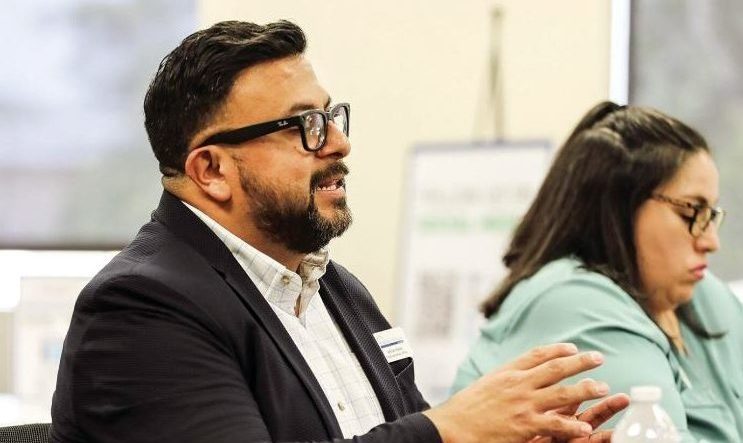Workforce Solutions Alamo recently held the first of a series of meetings with local employers and other major stakeholders to gather input regarding how they can support the workforce development system in Kerr County.
The informational meeting was hosted at the BCFS Health & Human Services Office on August 6. Prominent employers, city board members, and leaders from local organizations were invited to share their insights of what challenges workers and employers face in Kerr County. Workforce Solutions Alamo has a service area that covers 13 counties, so participating in shaping the local plan is how stakeholders in the area can tailor the program to their community’s needs.
In this first meeting, the Chief Innovation Officer at WSA, Adrian Perez, presented the framework of how the 2025-2029 Local Plan will be developed. The document details WSA’s strategies to be implemented within its service area and is open to amendment after two years. Workforce Solutions Alamo will hold three subsequent meetings to determine potential partners, identify growing occupations, and assess the county’s current economic health.
Perez comments on the types of partners that would be involved in the local plan, “Our goal is to work with the city, county, school districts, and community-based organizations in each county, to start a conversation about a scope of work around these elements.”
Though this initial meeting was purely informational and did not explore details of the local plan, some in attendance already began to have ideas for areas of improvement in Kerr County.
Diana Alvarez-Gutierrez, who works at Hill Country Mental Health and Developmental Disabilities Center, voiced her observation, “Getting to and from work is a barrier here. We have a population of seniors without transportation who also do not qualify for disability but need a job to support themselves.”
Nicole Cox, who works alongside Alvarez-Gutierrez at Hill Country MHDD, identifies a different demographic that faces challenges in the current workforce system. “Another population that we work with a lot at the clinic that has difficulty with employment is individuals who have a criminal background.” states Cox.
Alvarez-Gutierrez elaborates on Cox’s statement, “We have a huge recovery program in the area, with a lot of those individuals not having a means of transportation either from a DWI or lack of a license at all.”
The Rural Services Coordinator at WSA, Stephanie Moore, corroborates this take and relates it to the other communities she has serviced. Moore states, “I can tell you from covering all the rural counties, transportation is probably the number one barrier that every single county has.”
Though there are public transportation options in Kerr County, they are limited, overexerted, and can be unreliable. Alvarez-Gutierrez explains, “We have the Alamo Regional Transportation bus, but it only runs certain hours. Our individuals utilize it a lot, but we have recieved complaints about being dropped off too early and picked-up too late. Sometimes they’ve even been forgotten since there are so many people to tend to.”
This conversation previews the discussions of future meetings, where WSA plans to delve deeper into the challenges and barriers within the workforce system that are specific to Kerr County. Then, continue to work with invited stakeholders to give input on solutions that can be implemented into the local plan.
For more information regarding Workforce Solutions Alamo or to see the previous local plan, visit https://www.workforcesolutionsalamo.org/about/board-plan.
